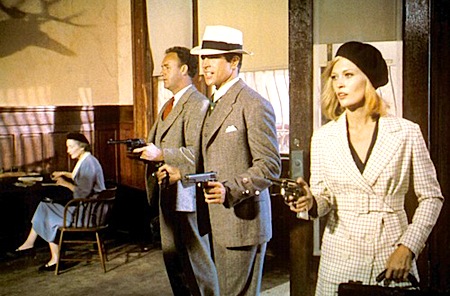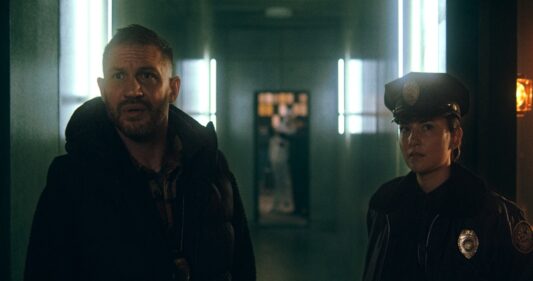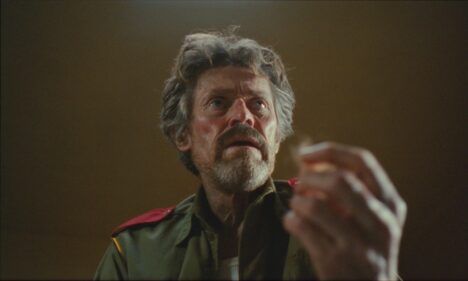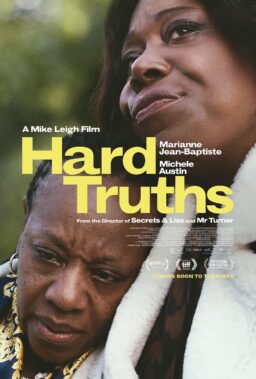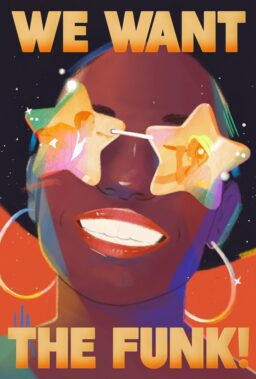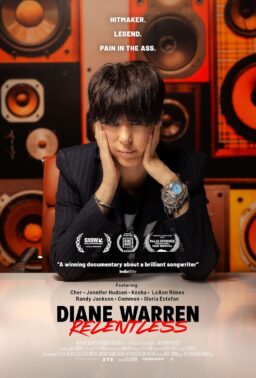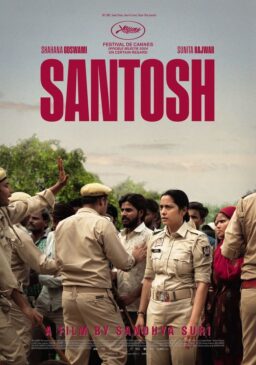LONDON – No film in the last 10 years has gotten better reviews in London than Warren Beatty‘s “Bonnie and Clyde,” which opened here last week and in Chicago Friday. Beatty had all the reviews clipped out and stuck in a cardboard folder, which was resting on the coffee table in his room at the Gloucester Hotel. He kept pointing to the folder as if it was an exhibit and this was a trial.
“Hard to believe,” he said. “Great reviews. Tremendous reviews One critic called it the best American movie since ‘On the Waterfront.’ And you know what really hurts?”
He paused, and then continued to pace up, and down the yellow carpet.
“What really hurts,” he said, “is that one lousy review in the New York Times. Bosley Crowther says your movie is a glorification of violence, a cheap display of sentimental claptrap and that’s that. The New York Times has spoken, hallelujah.”
So Beatty, who produced and starred in “Bonnie and Clyde,” was getting it off his chest at, last. It was the first time he had replied to Crowther’s charges, although Arthur Penn, the film’s director, had a succinct word or two to pronounce about Crowther last week.
The whole “Bonnie and Clyde” controversy is something of a rarity in American movie circles. You’d probably have to go back to “Psycho” (1960) to find another Hollywood film that has generated such intense debate. There’s a little war going on right now in the little world of movie critics and it’s beginning to look as if Crowther is getting the worst of it.
“The man at the New York Times has once again blown his tiny supply of cool,” Wilfred Sheed, Esquire’s movie critic, wrote this week. Andrew Sarris of the Village Voice accused Crowther of setting back the American film industry by refusing to recognize a great film when it finally made one. Variety covered Crowther’s attack on violence cheek by jowl with a paragraph reporting that the Legion of Decency had praised the movie for its treatment and approach.
And after Crowther, in a second article, served notice to Hollywood that he will ”no longer favorably review a movie with too much violence in it,” Orson Bean wrote the Times: “More and more it seems that a liberal is someone who will fight to the death for your right to agree with him.”
The funny thing is that the storm over “Bonnie and Clyde” has blown up so quickly. This wasn’t exactly a movie that everyone stood around for months with their tongues hanging out, waiting to see. For a long time, “Bonnie and Clyde” was just some movie that Warren Beatty was shooting down in Texas. It was about Bonnie Parker and Clyde Barrow, two folk heroes of the 1930s, who robbed banks, killed people, and snapped each other’s pictures to send in to the newspapers. The Barrow Gang, as the ads have it, “was the strangest damn gang you ever heard of.”
The story sounded interesting enough, sure, but who expected much? Penn was a director with moments of brilliance but an uneven track record, and Beatty – well, everybody knew Beatty was a crazy kid, kind of eccentric, who might throw an ashtray at you.
That was the attitude until “Bonnie, and Clyde” was premiered at the Montreal Film festival, when suddenly people realized they had something to deal with here. This was probably the best American film of the year. Beatty and Penn (who would have guessed it?) had gone out into the desert and labored and brought forth a masterpiece. Most of the people who saw the film believed so, anyway. But not Crowther. And not – for a week, anyway – Joseph Morgenstern, the critic at Newsweek. In an unprecedented about-face, Morgenstern panned “Bonnie and Clyde” one week, and then reversed his stand in the next issue. “I was wrong,” he wrote, analyzing where he’d gone astray and praising the movie extravagantly.
The Newsweek episode brought a smile to Beatty’s lips. “Can you picture it?” he said. “Morgenstern is honest enough to admit he changed his mind. So he goes in to the editors, and they say, Good Lord, you can’t change your mind. You’re a critic you’re infallible. But Morgenstern stands his ground, so they let him have his way. I’ll bet some doors slammed at Newsweek.”
So Newsweek came around. The other reviews were good. All except for Crowther. And it was his review that Beatty simply could not forget. He walked up and down in his hotel room, he shook his head, he picked up the clippings of the London reviews for reassurance, he talked.
“Because Crowther writes for the New York Times,” he said, “he has influence all out of proportion to his importance. Out in the bush leagues, the theater owners, they read the Times. For them, Crowther is God. Everybody in the world can like a movie, and if Crowther doesn’t, he kills it.” Beatty said part of the trouble might have been the audience at Montreal.
“Maybe Crowther thought when the audience cheered, it was cheering for violence. See, there are several scenes in which we carefully develop one emotion in the audience, and then – zing! – we cut very fast to the opposite emotion. So you’re sitting there laughing and suddenly you look at the screen and what you’re laughing at isn’t very funny at all.
“That was kind of the way with Bonnie Parker and Clyde Barrow. They didn’t seem to be able to see their crimes in context. They killed all these people, and it was still a game for them, a lark. What we tried to do in the movie was put the humor and the violence in the same framework, to make a point about the social climate that produced the Barrow Gang.”
Beatty said he would give an example.
“Bonnie and Clyde are strictly amateurs at the hold-up game, of course. They take incredible risks for nothing at all. So remember the scene where Clyde is waving around this enormous pistol, and he’s in a grocery store and all he’s stealing is a sack of groceries. So the grocer fills the Kraft paper bag, and Clyde says. ‘You sure you ain’t got any peach pies?’ And the grocer is very nervous with that thing waving in his face, and he says, ‘No, sir, mister. I’m sure we ain’t got any.’
“And so the audience laughs because this is so ridiculous. But just then a big fat butcher lunges at Clyde with a meat cleaver. A meat cleaver! And the audience says this isn’t so funny. But then Clyde and this fat butcher roll around on the floor, and that’s funny, because this butcher looks so comical and so they forget the meat cleaver, they start to laugh again. But then Clyde bashes the butcher on, the side of the head – splat! – with his pistol, and then he swings back and hits him on the other side of the head – SPLAT!”
Beatty swung his hand back and forth, fast, as if the pistol were still in it. Then he leaned forward enthusiastically. “What we did,” he said, “was, we quadrupled the sound level on the second splat. So it was incredibly loud and sickening. And the audience found the laugh dying on their lips. They hated us for that, hated us for playing with their emotions that way.
“But then – we change the mood again.” Beatty sounded like a kid explaining a trick play around left end. “Bonnie and Clyde drive away in their touring car, and oil the sound track we have Flatt and Scruggs playing ‘Foggy Mountain. Breakdown,’ giving the whole thing kind of a carnival air. Only this time the music isn’t appropriate, see? It’s music that says laugh, but you can’t laugh. The whole movie kind of weaves back and forth between making you laugh and making you sick.”
Beatty was interrupted by a knock on the door. He admitted a bellhop, who carried a gift-wrapped present.
“Humm, probably cyanide,” Beatty said, unwrapping the parcel. It was a bottle of champagne. He read the card aloud. It said, “To America’s Greatest Producer.”
Beatty smiled. “Well, how about that.” he said. He put the champagne on the mantelpiece. Then he sat down, for the first time during the interview and crossed his legs.
“There is one consolation,” Beatty said. “At least Crowther was furious at the movie. I couldn’t have taken it if he’d been indifferent. But how can you take anyone seriously in this day and age who calls a character in a movie a ‘young tough?’ I ask you.”
Beatty was on his feet again by this time, looking out the window. He said he was only going to be in London for another day or two, and then back to Hollywood.
“A lot of people out there just kind of dismiss me as an irresponsible kid,” he said. “All of Hollywood is old, old, old, for that matter. There are as many good young actors and directors in America as there are in Europe, but Hollywood shuts them out. Hollywood is afraid of young blood. It’s a ghost town.”
He pointed a finger and posed a question. “I’m 28, years old,” he said. “I’ll give you five seconds to name me another Hollywood leading man under the age of 35.”
It was hard to do. Promising newcomers, yes, but no stars. And even later with plenty of time to think, only three names came to mind: Elvis Presley, Frankie Avalon, and George Hamilton. That’s food for thought right there.

